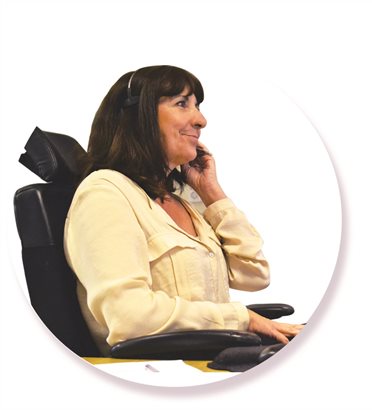Posted: Tuesday 30th October 2018
06:50 - I arrive ready to take over from the night shift at 7am.
07:00 - It doesn’t take long for the first call to come in: a lady has taken a fall, is on the floor and has bumped her head so cannot get up. I telephone the paramedics and inform the client’s contact and stay on the line, taking other calls as they come in and going back to check on the client.
07:00-11:00 - Between these hours we can take in excess of 400 calls. People are getting up for the day, they may be feeling unwell, suffer a fall, wondering what time their carers will arrive for personal care, or be waiting for their transport to the day centre. Every call is different and we happily deal with any medical emergency that arrives. We also take calls from Site Managers checking on their schemes for the day and report to them any messages from incidents the night before.
11:00 - 14:00 - Lunchtime is always a busy time. So far today we will have taken around 700 calls, the majority from people feeling unwell and needing a doctor or ambulance, others enquire about their meals situation for lunch. One particular call was from a gentleman’s falls detector. He did not answer when I called through to see if he was OK so I immediately tried him on his own telephone in case it was a mistake, but he did not answer so I went through the process of ringing his named responder to go round and help but the contact wasn’t answering. His other contacts were not available so I rang our professional responder who went out to asses the situation. When he got there he quickly rang back to confirm that the gentleman had fallen so I called an ambulance. I then rang his contacts and left a message as to what had happened.
14:00-15:00 - This is often the time service users test their pendants, which we encourage them to do once a month. Its 3pm so that’s the end of my day shift; but Herts Careline is 24/7 so its time for the late shift to start as the operators arrive ready to take the evening calls.
15:00-18:00 - We can typically take around 250 calls during this period. We receive a call from a lady’s carbon monoxide detector. As I speak to her she told me everything was OK, but I had concerns about this as the alarm kept activating. So I rang her carer. It resulted that the lady did have carbon monoxide leaking from her old boiler and was lucky that she had the monitor in her house to detect it. Call operators deal with such a wide range of situations but they all have one thing in common – the welfare of vulnerable residents. Our service provides much needed reassurance to residents that they can get the help when they need it and it also brings piece of mind to their family members and friends.
18:00 - 23:00 - During the evening, we take many calls from people needing reassurance. They’ve often had family visiting them after work, but once they’ve gone home they’re in their homes by themselves and can feel quite lonely. Also, after a day awake, people become sleepy during the evening and can be prone to falls on their way to bed. We’re here to provide the emergency help they might need.
23:00-07:00 - The night team arrive at 11pm ready to take what can be around 200 calls during the early hours. We take a call from bed sensors which alert us that a person has not returned to bed after popping to the bathroom in the night. We speak to the resident of that property to find they have fallen on the landing and cannot move. We summon a paramedic to attend and check the person over. Without us monitoring the situation, that person could have laid unattended on the landing until their carer arrives around 8am.
07:00 - As the 24 hour period comes to an end, the early turn are arriving ready for the day ahead. Over 24 hours we can take around 1,500 calls and a third of these can be life critical calls. Our role is so valuable and, working with our emergency partners, we really do save lives.
